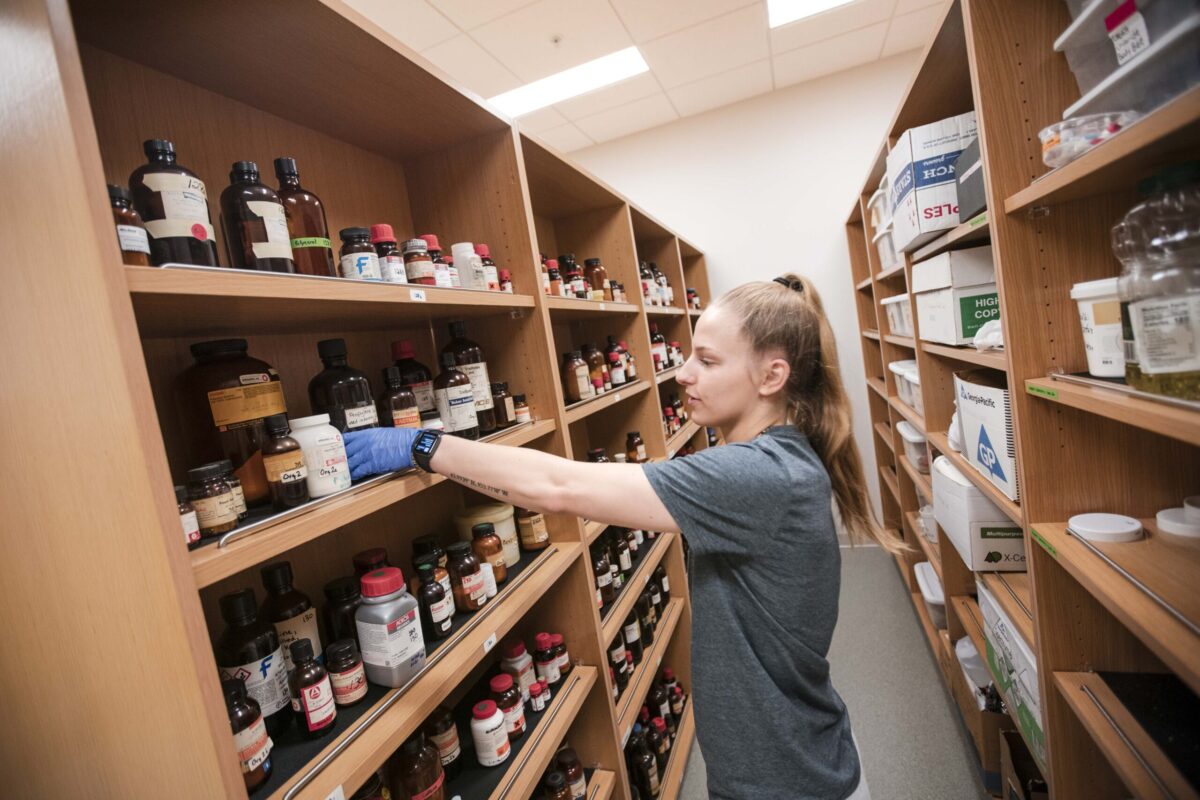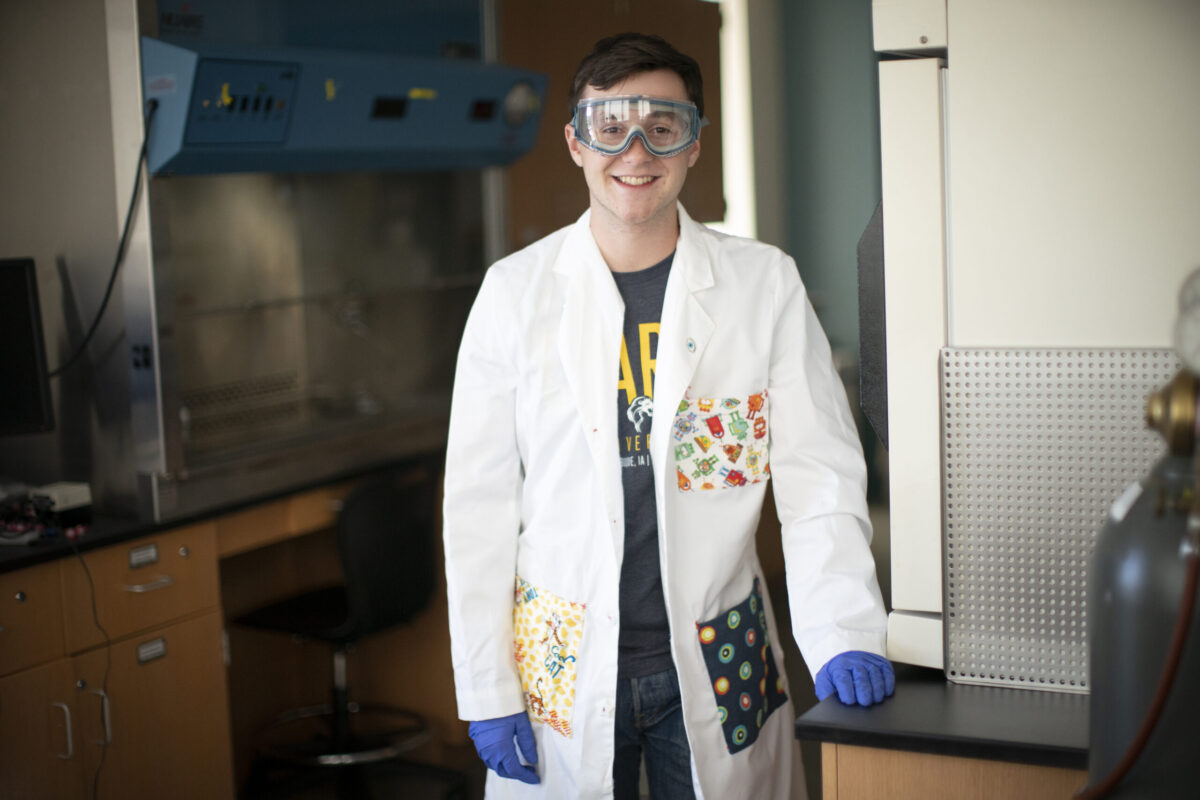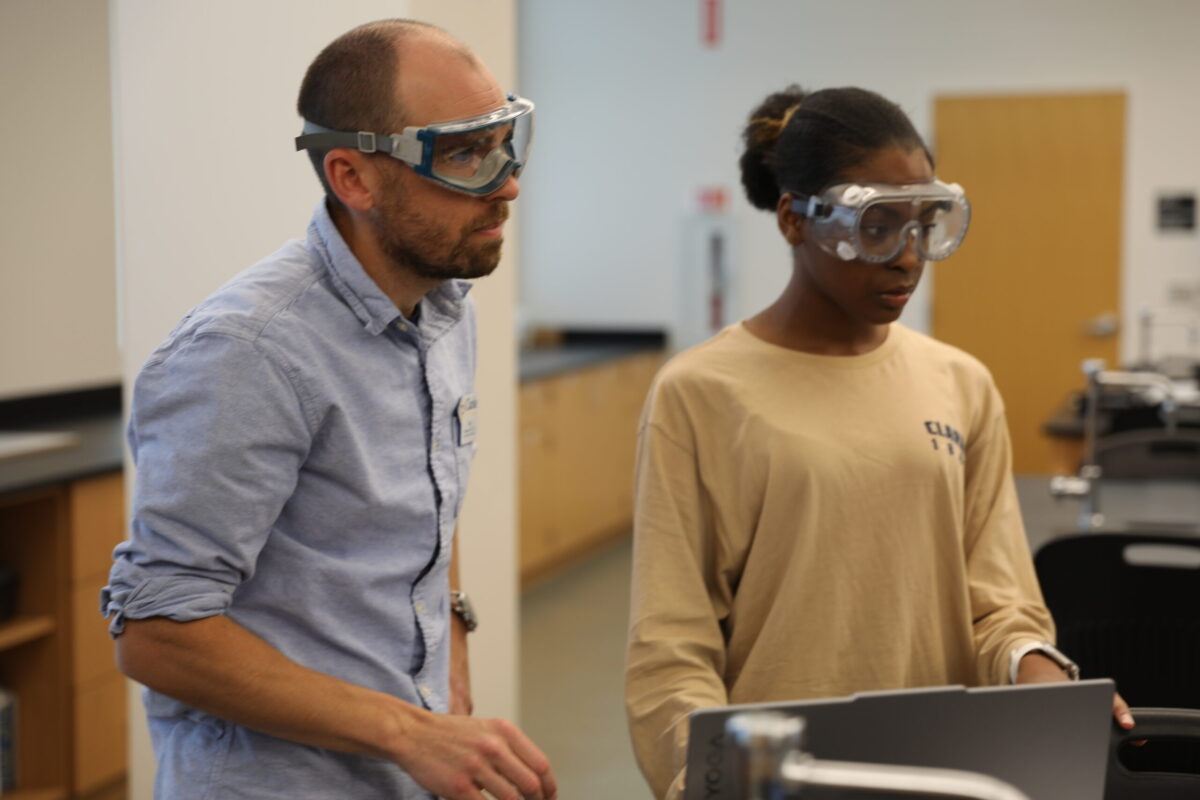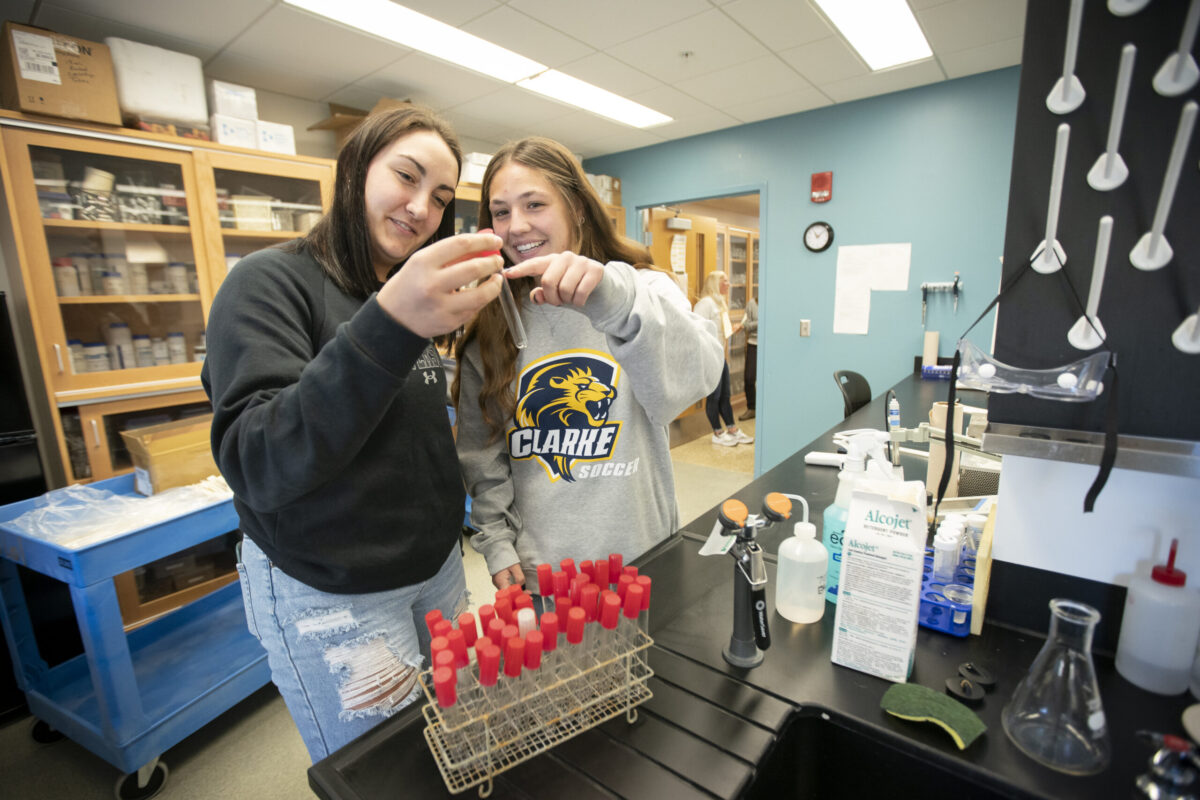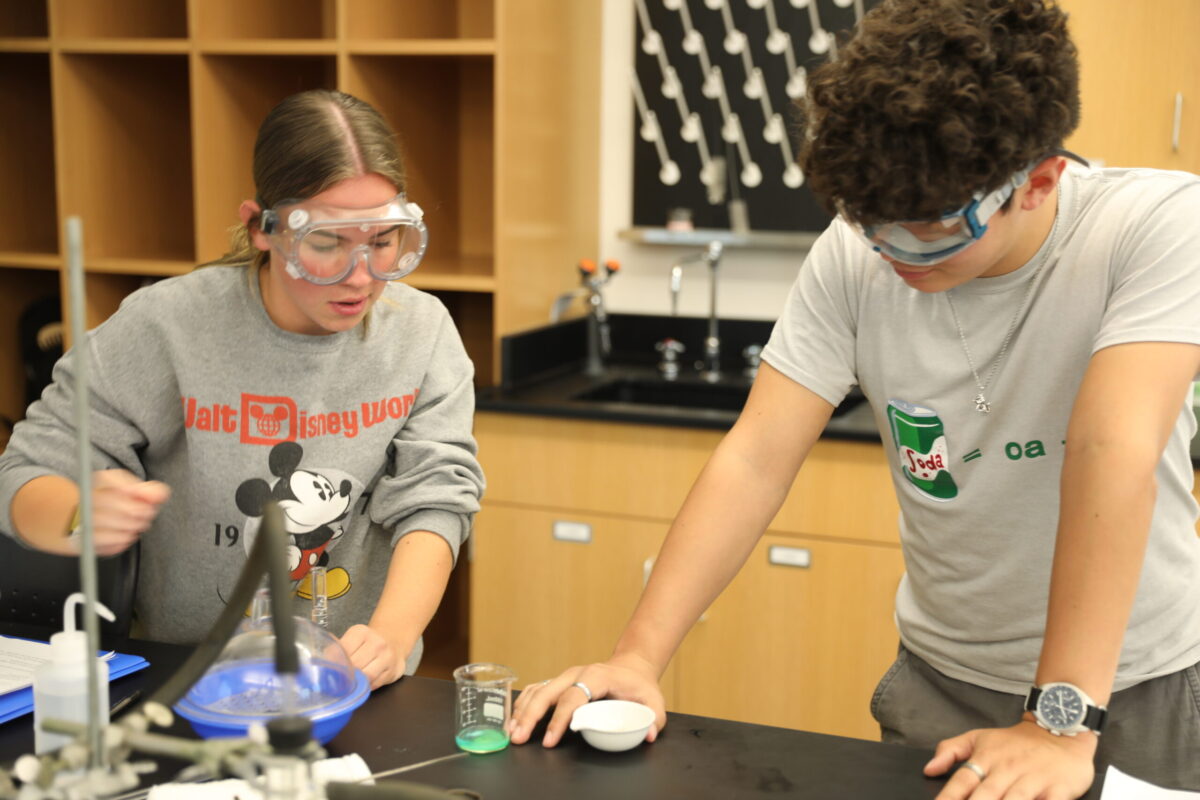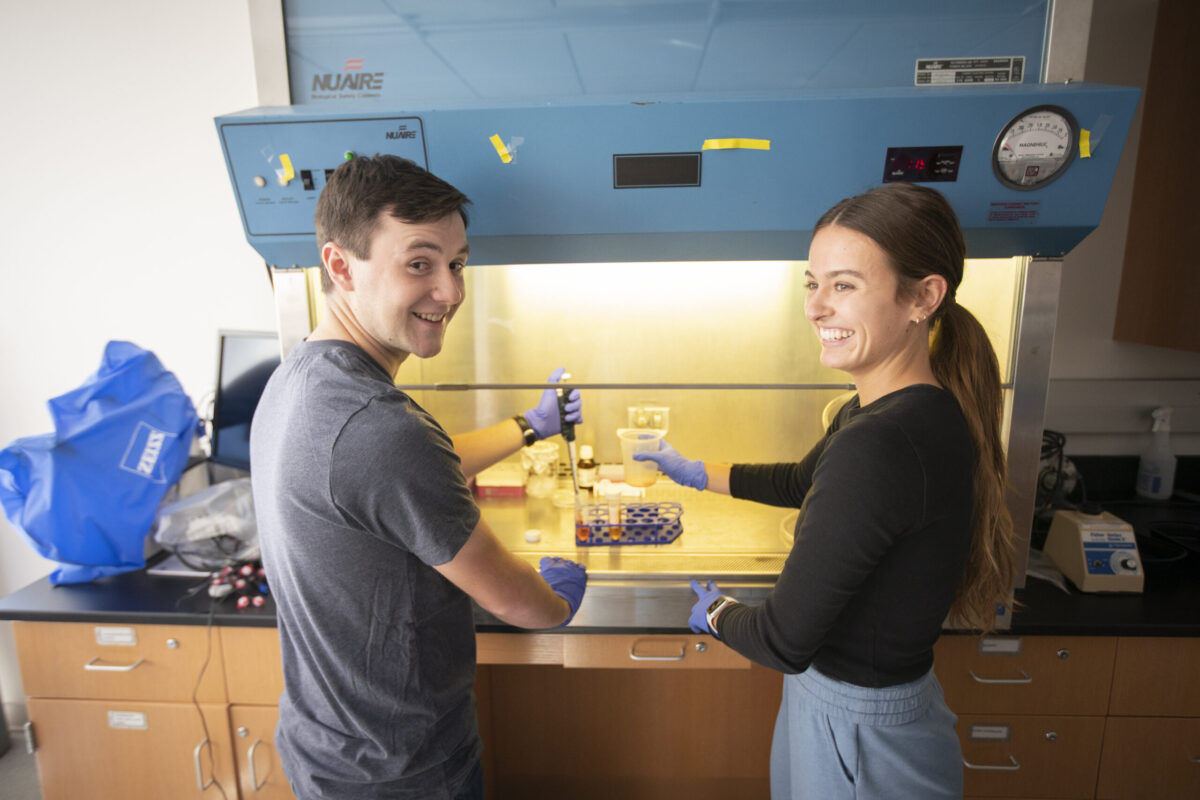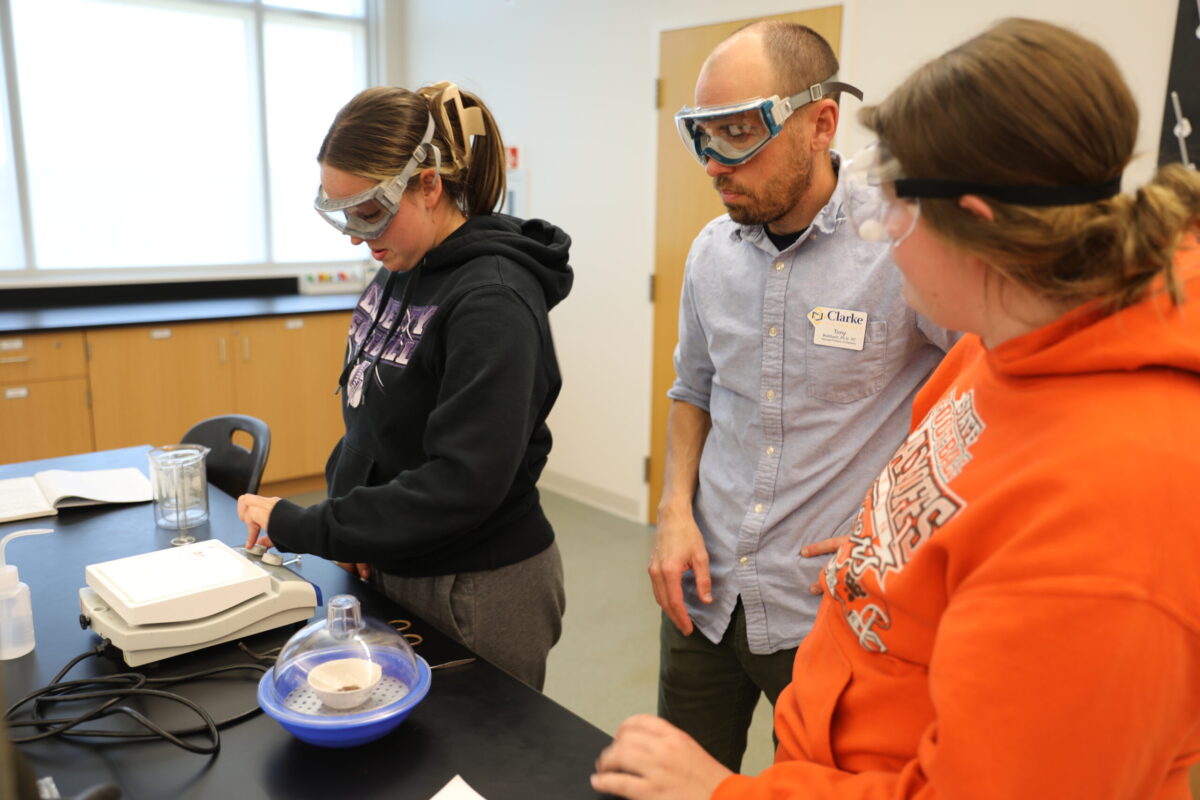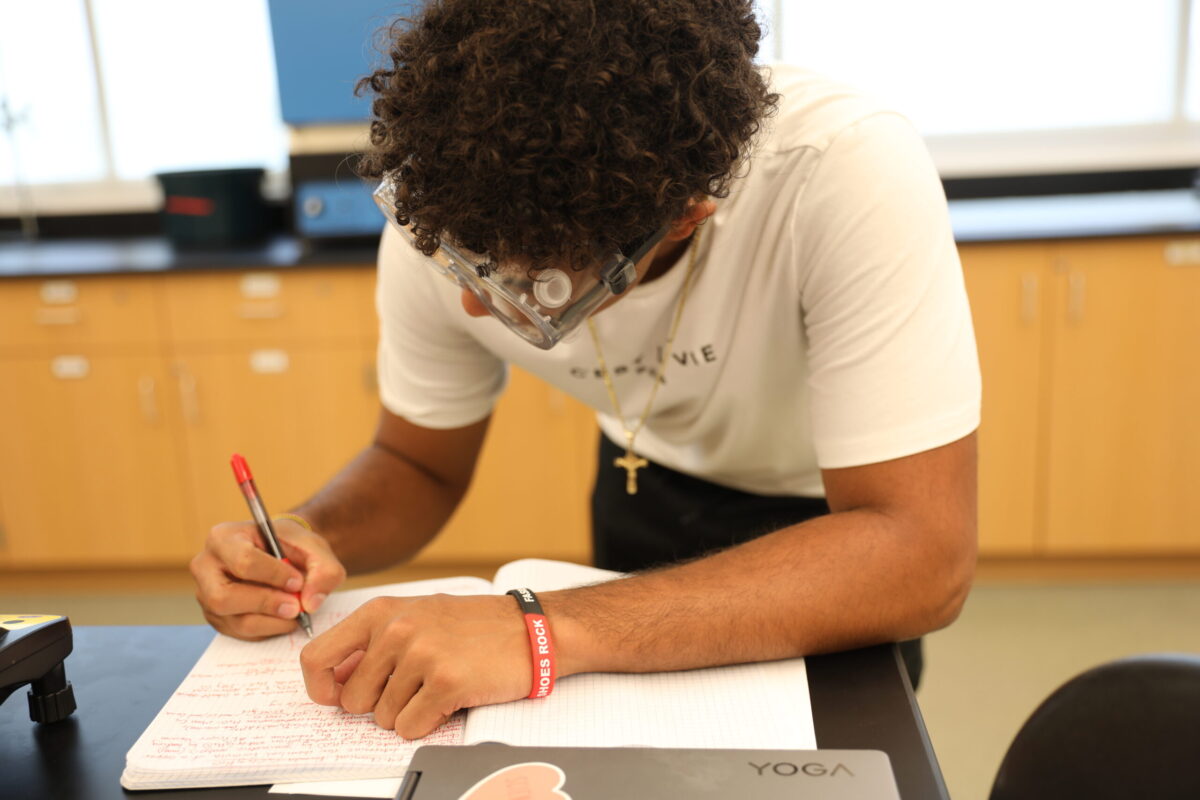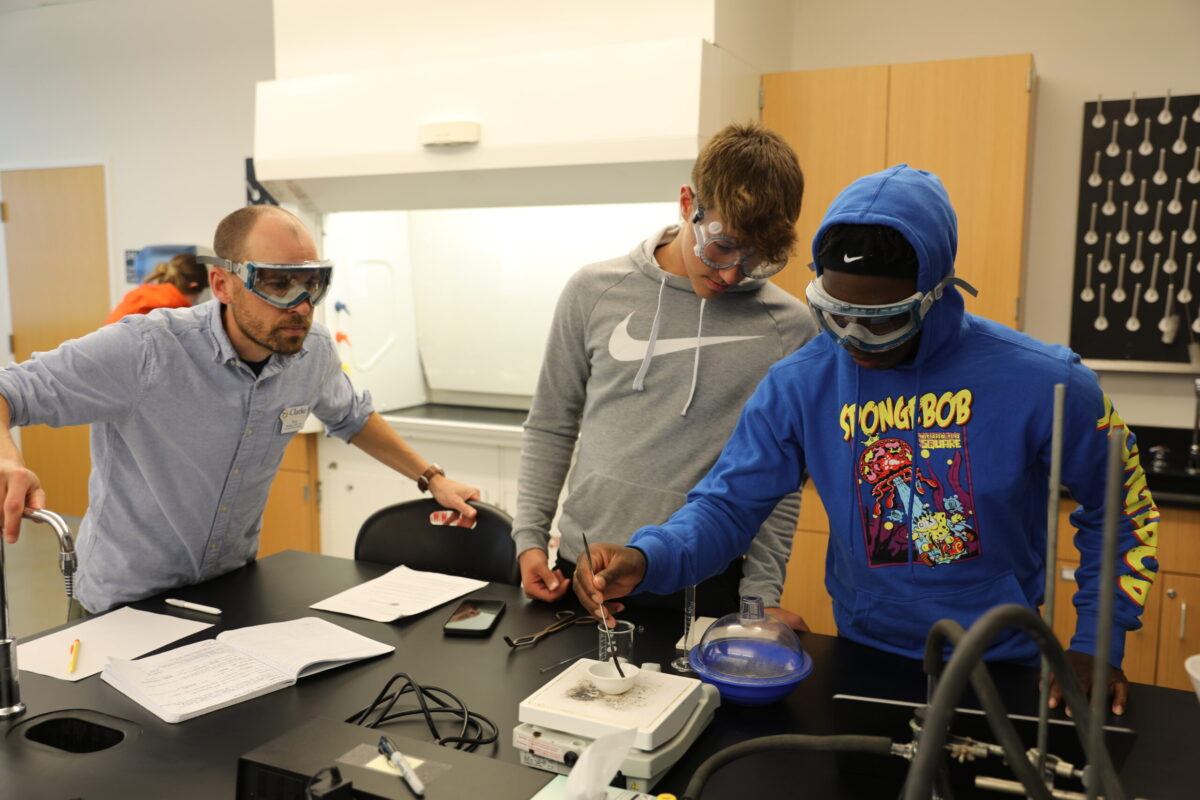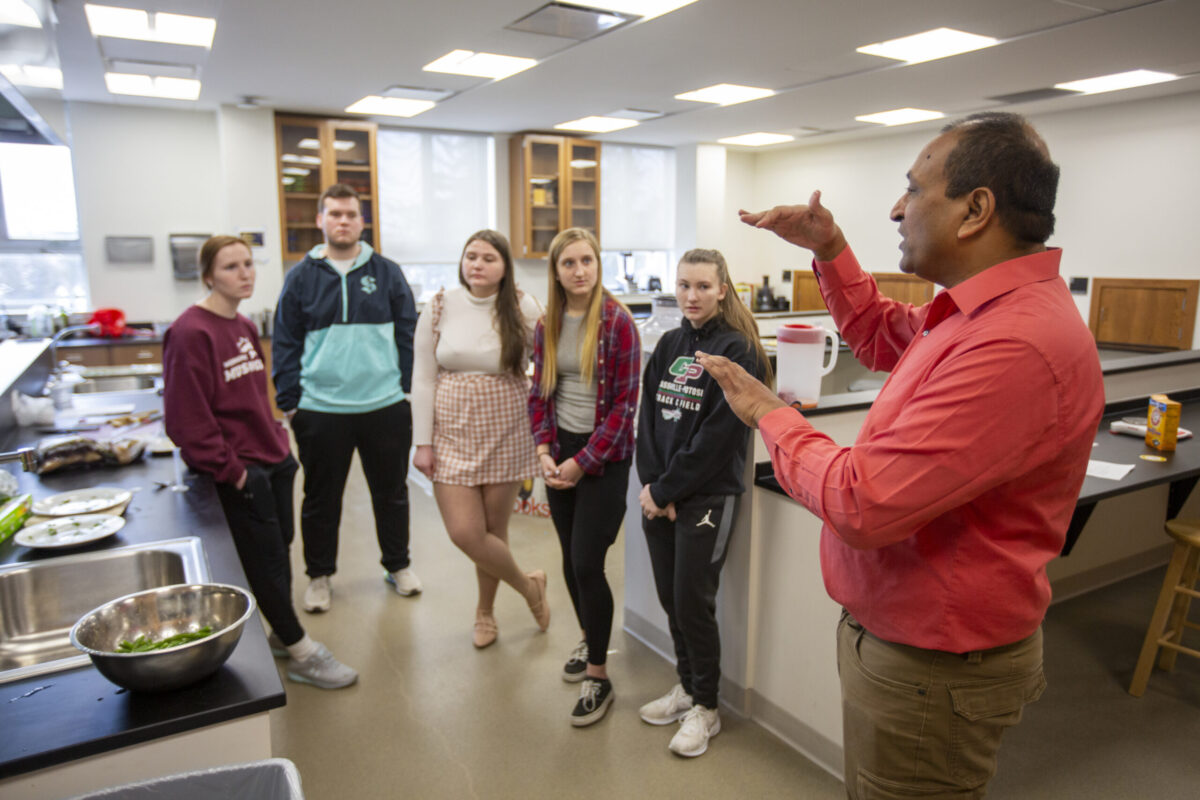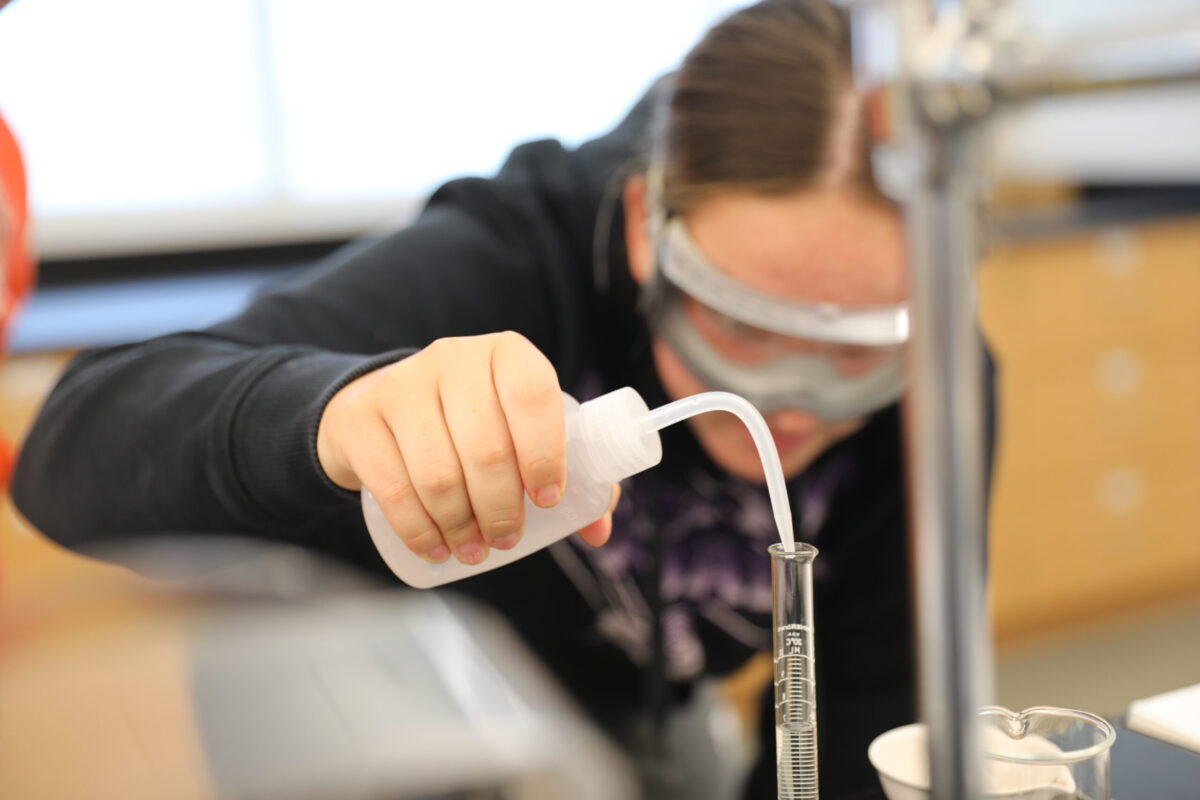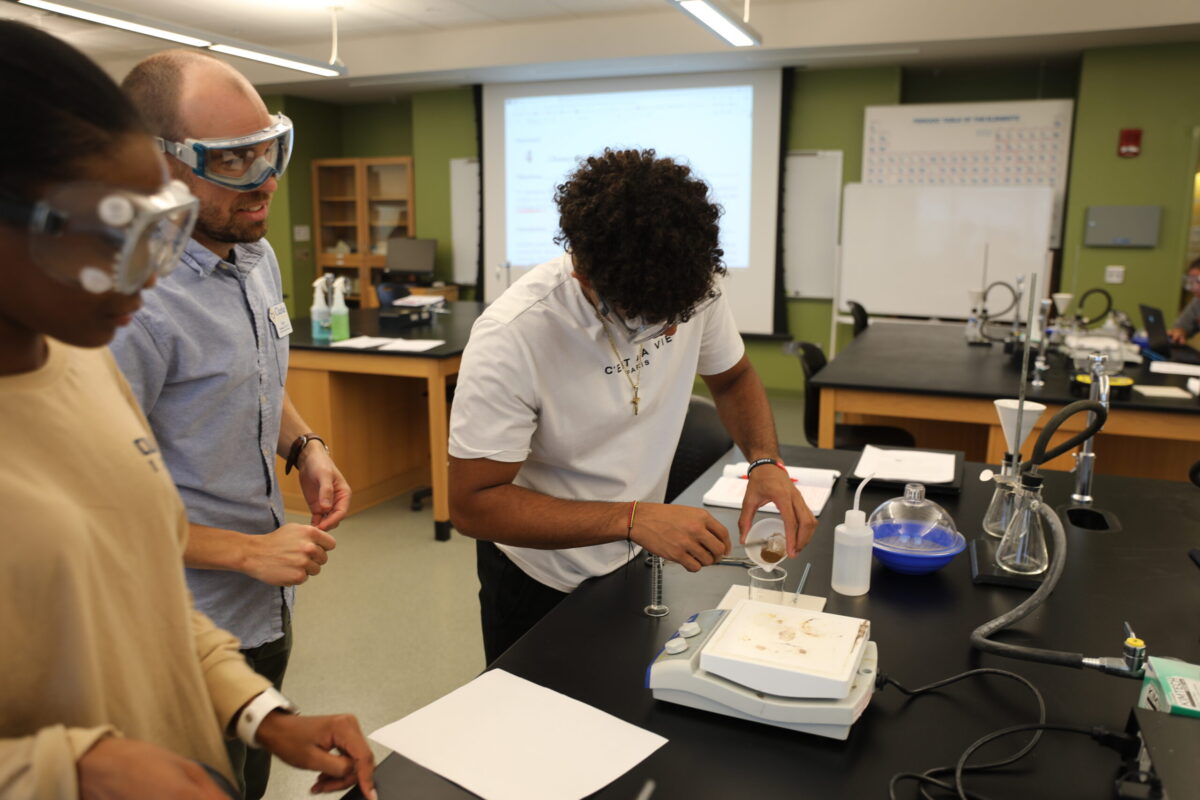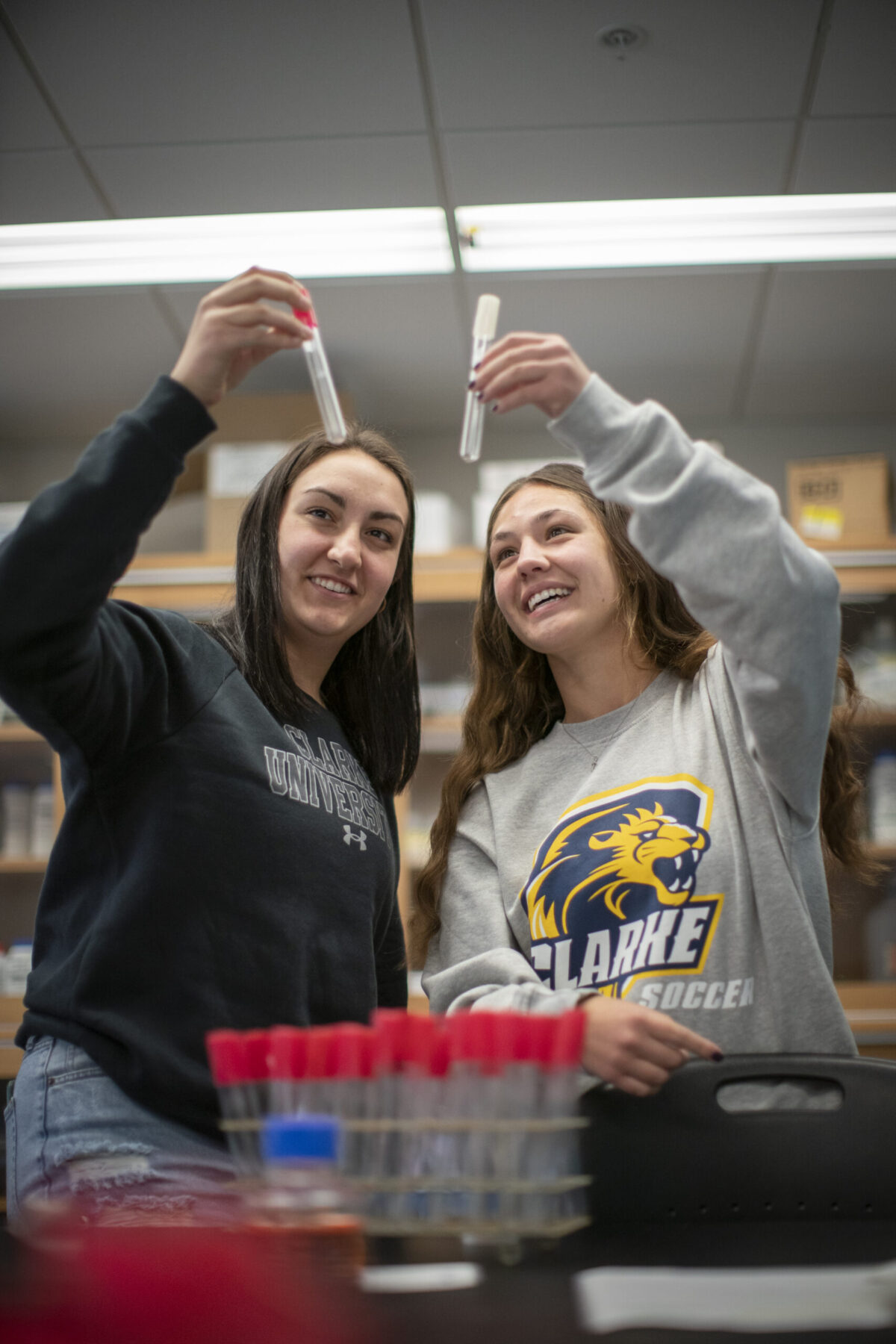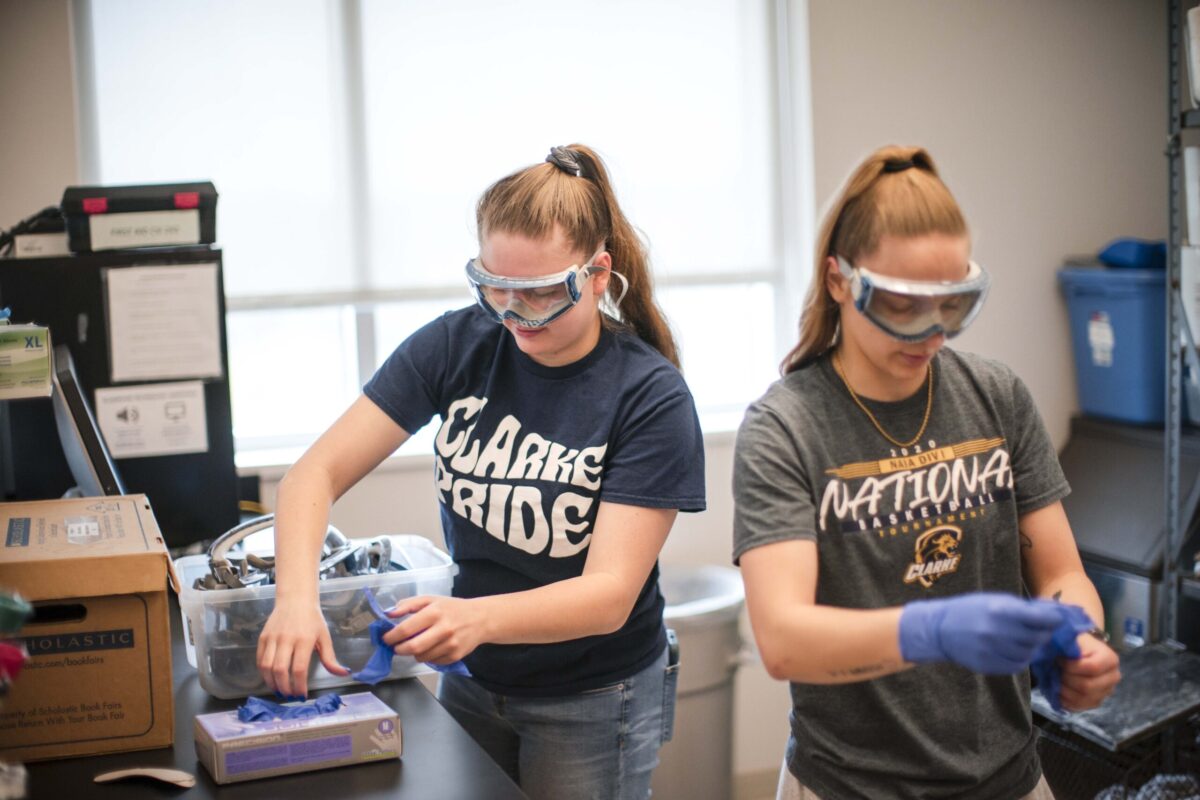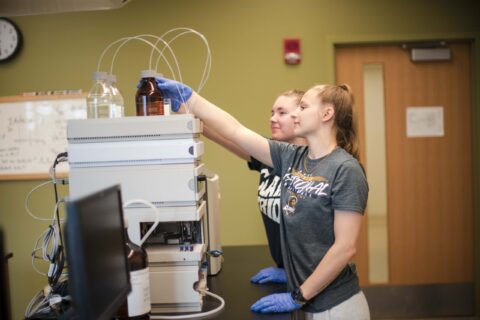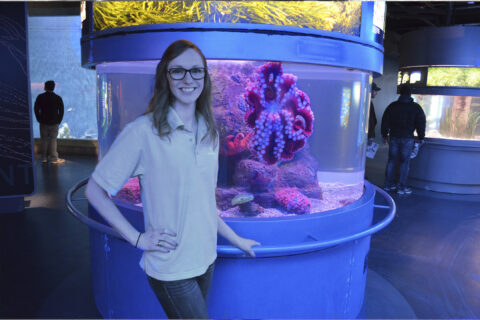Sunil Malapati, Ph.D.
I am very proud to be part of a department that sets very high standards for student achievement, and our students have risen to the challenge.
As a Chemistry major at Clarke University, you will embark on the study of matter — or essentially, every physical thing in our universe. Chemistry is a broad and evolving field of study and as a fundamental science, Chemistry has been and will continue to be at the forefront of developing solutions to problems in nearly every aspect of our lives.
Earning a Chemistry degree at Clarke combines rigor with flexibility, allowing you to explore chemistry and related areas while preparing for a wide range of careers and professions. As early as your first year, you will take part in hands-on research and experiments to try to understand underlying problems and create solutions. From global climate change, developing renewable energy sources, or determining the purity of pharmaceuticals, chemists are essential and in-demand.
Your Chemistry degree will prepare you for a career as a professional chemist and builds the foundation for careers in other related science fields. The program provides a fundamental knowledge of the major areas of chemistry: biochemistry, organic, spectroscopic, analytical, and physical chemistry. The major also includes offerings in specialized courses like medicinal chemistry and separation methods.
The world needs professionals who know science. Are you ready to become one of them? At Clarke University, you will get a powerful education that’s infused with liberal arts and challenges you to think deeply. If you are inquisitive and want to know why or how things happen, Clarke’s chemistry degree might be right for you.
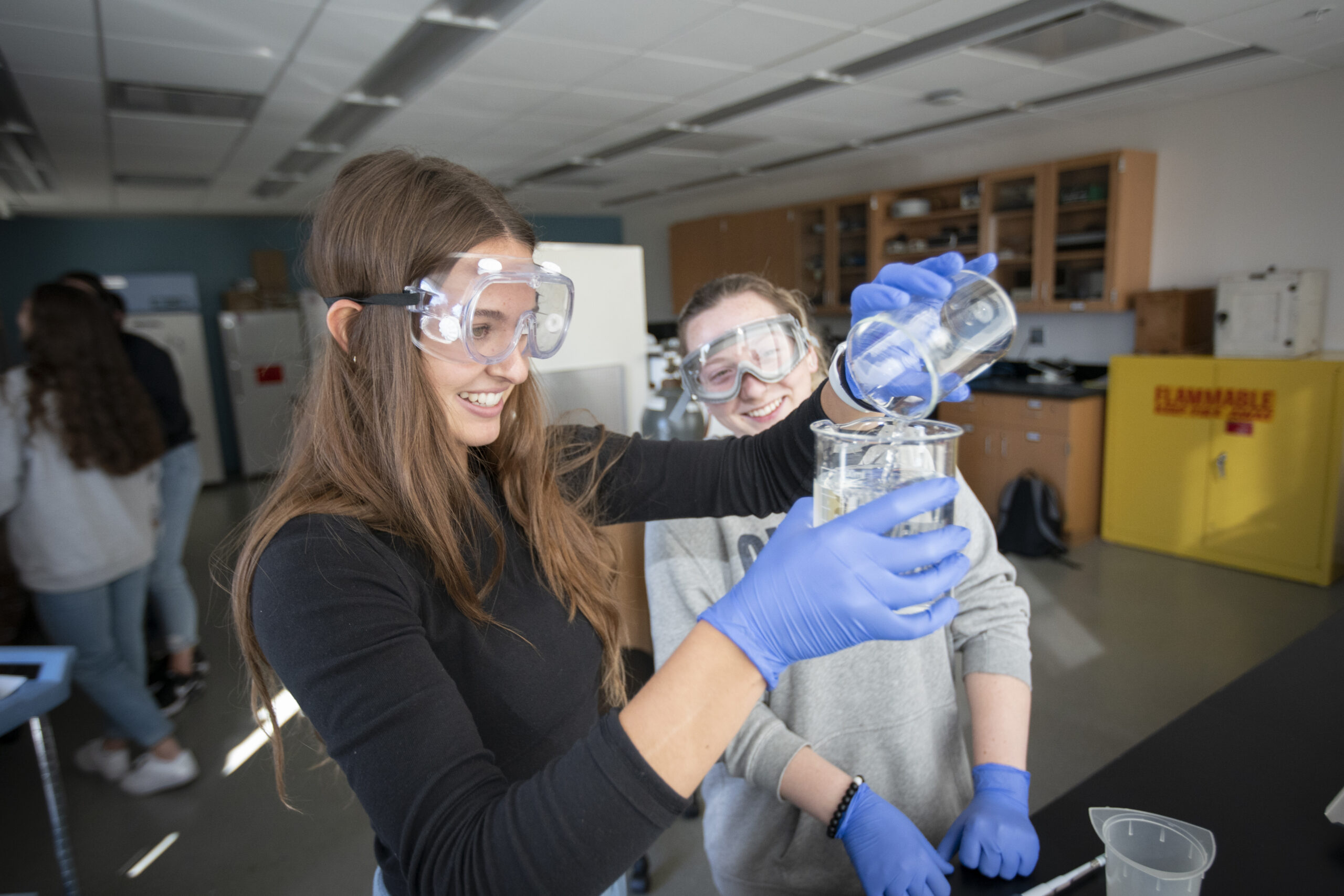
Below is a small sampling of the types of classes you may take as a Clarke Chemistry major:
INTRO TO RESEARCH — Get a taste of chemistry research using state-of-the-art instrumentation as early as your first year.
MEDICINAL CHEMISTRY — Gain insight into the chemistry of pharmaceuticals with an in-depth exploration of the molecular reactions.
SEPARATION METHODS — Separate and analyze chemical mixtures using advanced chromatography techniques and industry-grade, research-quality instruments.
SENIOR CAPSTONE — Your Capstone course is a culmination of the chemistry degree, where you will be able to communicate your findings in both oral and written forms. A chemistry faculty member will mentor you in a one-on-one environment and will provide insight and assistance as you prepare for your next adventure after Clarke. This course is required for all students.
You may pursue one of the following degrees: B.A. Chemistry, B.A. Biochemistry, or B.S. Biochemistry. The degrees differ in the number and types of course required to provide you with flexibility in your studies. You will receive professional guidance from faculty to make this decision. The Clarke Chemistry Program offers a truly unique undergraduate experience to its majors, including:
.
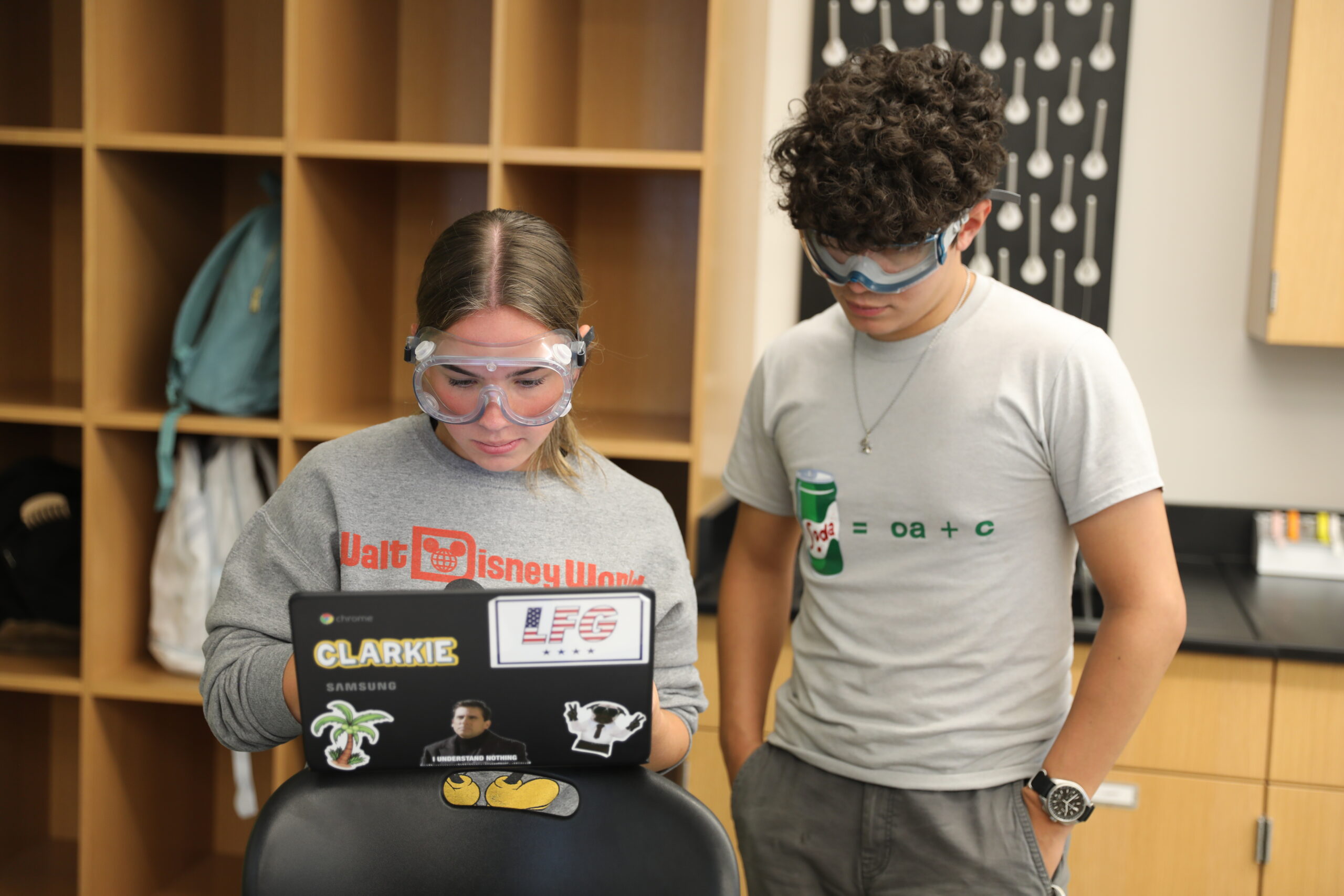
How You’ll Learn
Clarke’s use of technology is pervasive – from hand-held data collection to molecular modeling. Visualization and the use of software is key to understanding. You will be able to use this equipment and more in the lecture-lab classrooms found in the Marie Miske Center for Science Inquiry. Introductory research classes are an option as early as first year.
Interesting Internships
Opportunities abound for students interested in college Chemistry in Iowa, the Midwest, and nationwide. Recent Clarke chemistry majors worked paid internships at:
What careers are available with a Clarke Chemistry degree?
A degree in Chemistry provides a strong foundation in science and mathematics that gives you the flexibility to pursue a wide range of careers. In general, the employment sectors seeking Chemistry degrees include Academia, Industry, Government, and Health Care. Some example careers within these sectors include:
Applicants are considered on an individual basis. Apply to Clarke today to begin your journey.
The Mary Miske Center for Science Inquiry has modern classroom and lab spaces offering industry-grade equipment, including a 10-table cadaver lab. At Clarke, you’ll get hands-on lab experience as early as your first year.
You will learn by observation and participation at off-campus laboratories or field settings through internships and experiential education ventures. Internships often facilitate entrance into the job market and are highly recommended for acceptance into some graduate programs.
Life at Clarke is living traditions, being proud, participating in the campus community, and being an active member of our greater community.
Through your Clarke experience, you will be involved in many different activities that will guide you on your college journey. By your senior year, you will have a résumé of all your awesome involvements packaged and ready for your first interview.
Clarke University offers several faculty-sponsored study abroad experiences to destinations such as Spain, Scotland, Ireland, and Japan. Study abroad trips encourage you to experience different cultures, broaden your mind, and discover your own passions.
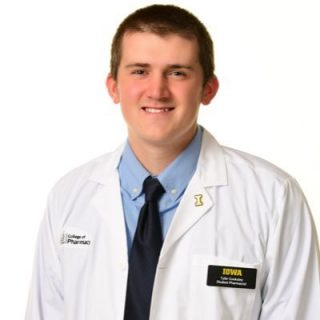
My experience at Clarke provided me with a very solid understanding of the physical sciences which has been a part of almost all of my classes so far. Having a chemistry degree provides a great background when learning about pharmacokinetics, pharmacodynamics, and the drug making process. There are a couple classes that stand out. Analytical Chemistry taught by Dr. Tony Breitbach taught me about taking the time to make careful measurements to get the right product, which I was able to use in pharmacy compounding classes. Medicinal Chemistry taught by Dr. Karen Glover provided a good first step into the world of pharmacokinetics and helped me get a step up on classmates that had not been previously exposed to that material.
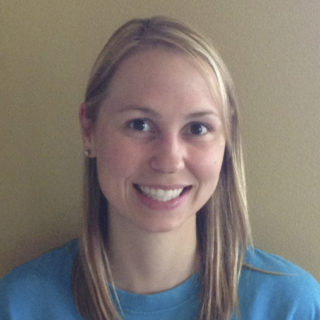
My chemistry professors at Clarke helped encourage my critical thinking, showed me the benefits of being thorough, and facilitated my personal and professional growth.
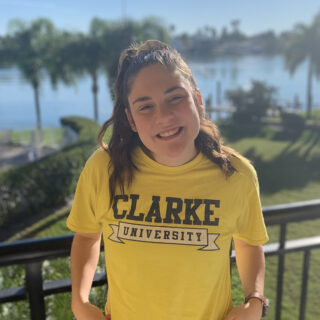
My classes and research experience prepared me for the rigor of graduate level chemistry classes. I participated in many activities including golf, student government, math club, chemistry tutoring and more, which, in conjunction with my schoolwork and a part time job, prepared me for balancing my current course load, participating in active research, and teaching general chemistry labs. The work life balance that I learned at Clarke has helped me to stay grounded and keep my priorities straight.
Percent of Clarke chemistry graduates who secured a job in their chosen field or enrolled in graduate school by August.
Chemistry majors rate among the highest in job satisfaction after graduation – 85.2% – according to studentsreview.com.
Work one-on-one with faculty on an undergraduate research project – an important criterion for entering graduate school.

